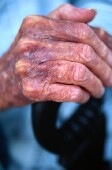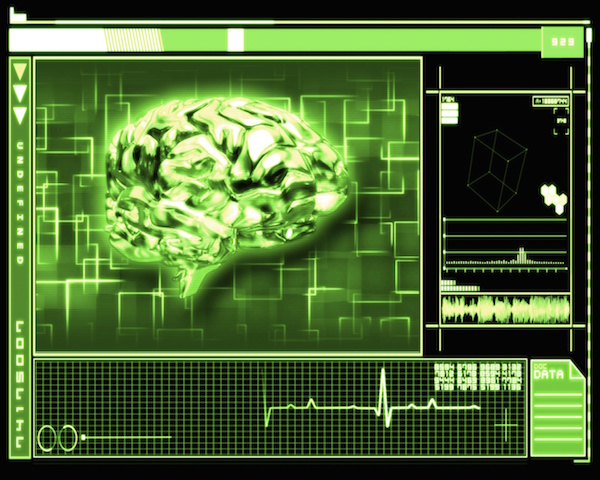
THURSDAY, Sept. 1 (HealthDay News) — Microscopic brain lesions that are too small to be detected using brain imaging technology may be the cause of many common age-related problems such as shaking hands, stooped posture and difficulty walking, a new study says.
Researchers examined brain autopsies of 418 nuns and priests, average age 88 at death, who had been followed since 1994 as part of an aging study. There were blockages in tiny blood vessels in the brains of 30 percent of those who had no diagnosed stroke or brain disease. (The study participants had agreed to donate their brains for examination upon their deaths.)
Multiple brain lesions were found in the brains of those who had the most trouble walking prior to their death. Two-thirds of the brains had at least one blood vessel abnormality, which suggests a possible link between blocked blood vessels and common signs of aging, the Rush University Medical Center researchers said.
The study appears in the journal Stroke.
“This is very surprising,” lead author Dr. Aron S. Buchman, an associate professor of neurological sciences, said in a Rush news release. “The public health implications are significant because we are not identifying the 30 percent who have undiagnosed small vessel disease that is not picked up by current technology. We need additional tools in order to identify this population.”
The researchers noted that Parkinson’s disease occurs in only 5 percent of older people, but at least half of people 85 and older have mild symptoms associated with the disease.
“Often the mild motor symptoms are considered an expected part of aging,” Buchman said. “We should not accept this as normal aging. We should try to fix it and understand it. If there is an underlying cause, we can intervene and perhaps lessen the impact.”
More information
The U.S. National Institute on Aging offers tips for healthy aging.

